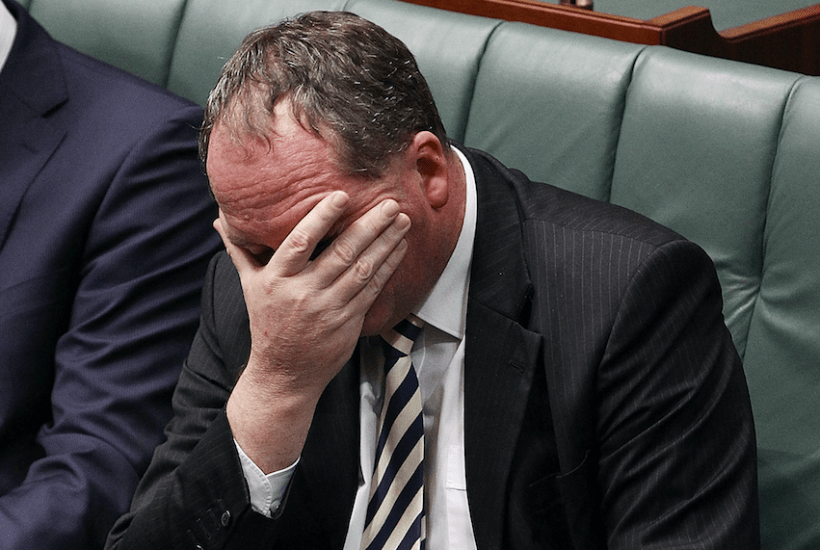Since when have Australian-born citizens with one foreign-born parent but permanently resident here been automatically obligated to the laws of that parent’s country of birth?
Not only when they happen to be in that foreign country but while they remain permanently domiciled and working here.
Barnaby Joyce, for example, who was born in Tamworth to a second generation Australian mother but unfortunate enough to have a Kiwi father.
New Zealand apparently passed a law that says that situation automatically makes Barnaby a Kiwi, whether he likes it or not.
One would logically assume that would only apply if and when Barnaby – so as to differentiate him from Alan, who may or may not hold dual citizenship but is still allowed to run our national airline- chose to move to New Zealand to seek residency and employment there.
Or to exploit the internationally dubious advantages possessing a Kiwi passport might offer.
He hasn’t done either but now finds his parliamentary career jeopardised because a foreign country considers him a citizen under its law.
Many Australians exploit the presumed advantage dual citizenship offers when travelling or working in other countries.
Dual citizenship is a complex issue and usually involves proactive application for acceptance by the country other to one’s birth and permanent residency.
There are exceptions.
For example, children born to Australian parents in the then Australian territories of Papua and New Guinea pre-1975 have those territories registered as their place of birth.
That complex situation does not necessarily entitle them to automatic Australian citizenship, since regulations were in place to prevent all those born in the territories of Papua and New Guinea from being granted automatic citizenship here.
Those born there to Australian parents after PNG independence in 1975 have that country recorded as their country of birth.
Those affected by either period inevitably find it difficult to penetrate PNG’s labyrinthine bureaucracy to obtain a copy of their birth certificates, leaving some effectively stateless.
There is a difference between Barnaby and his former fellow parliamentarians who chose to resign over possible conflict with Section 44 of the Australian Constitution.
Former Greens senators Larissa Waters and Scott Ludlam were both born in foreign jurisdictions which continued to recognise them as citizens of those states.
It was up to them to proactively renounce their birthright, and they did not.
Barnaby, however, was declared a citizen by a foreign state to which he holds no allegiance.
The Australian constitution is clear on citizenship status for eligibility to sit in the federal parliament.
It seems silent on the obligation of Australian born citizens to be bound by the laws of a parent’s country of birth.
Barnaby’s tactical error has been to attempt to “renounce” his Kiwi “citizenship”, thereby acknowledging its legitimacy.
He would have been better advised to declare as a native-born Australian he was not bound by the internal laws of a foreign jurisdiction.
Ross Eastgate blogs at http://targetsdown.blogspot.com.au/.
Got something to add? Join the discussion and comment below.
Got something to add? Join the discussion and comment below.
Get 10 issues for just $10
Subscribe to The Spectator Australia today for the next 10 magazine issues, plus full online access, for just $10.


























Comments
Don't miss out
Join the conversation with other Spectator Australia readers. Subscribe to leave a comment.
SUBSCRIBEAlready a subscriber? Log in